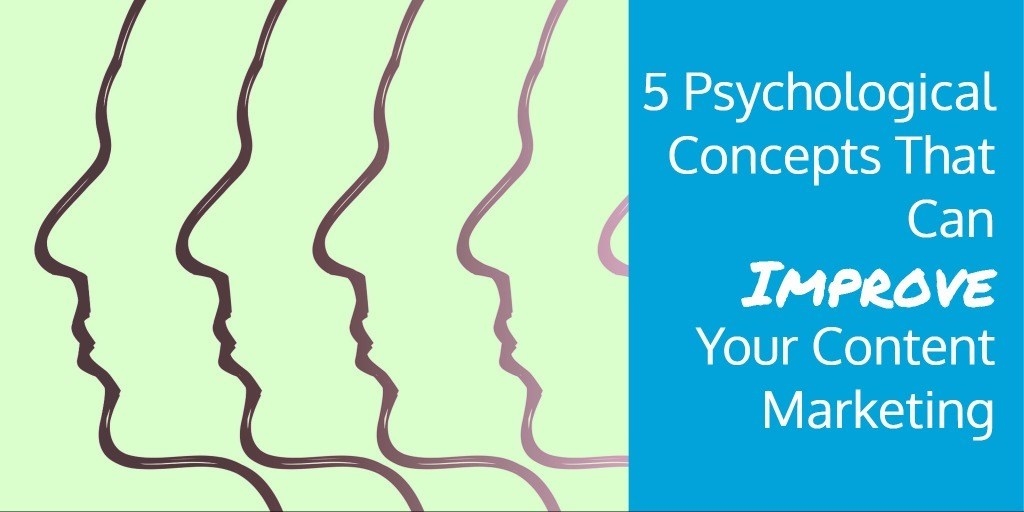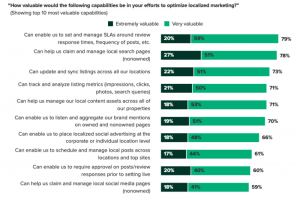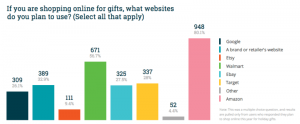
Though you may not have thought about it in such specific terms, content marketing is all about psychology. You need to understand who your target audience is, discover what topics and angles will appeal to them most, and then provide it to them. You also need to offer some degree of persuasion, as most content campaigns are built on achieving higher conversion rates through calls-to-action in content alone.
To some extent, you can rely on demographic research and logical reasoning to form the foundation of your campaign, but if you want to give it an extra kick, consider delving into the realm of psychology for more persuasive and appealing tactics.
Psychology for Content Marketing.
These psychological concepts describe how the human mind works in various capacities, and can all be used to direct or strengthen your content marketing campaign:
1. The Information Gap. The information gap theory of curiosity is intuitive and simple; when there’s a gap between what we currently know and what we want to know, we become curious. Our brains light up, causing a kind of “mental itch” that only provides relief when we have the answer. How can you use this to your advantage in content marketing?
First, it means withholding information so you can create a desire for that information before providing it. Asking a question on social media that your article answers, for example, instills this mental itch in your followers, and makes them not only more driven to check out your content, but more satisfied once they do. Something like, “Do you know what’s really in your morning coffee?” creates this discrepancy, much more so than a plainly stated title like, “How coffee Is made.”
2. Informational Social Influence. Informational social influence, sometimes referred to as social proof, is a series of tendencies we tend to follow in response to seeing how others behave. As social creatures, we tend to follow crowd mentalities and mimic the behaviors of others. In content marketing, this means demonstrating some measure of “social proof” can instantly improve the value of your work. This is why highly popular posts and publishers tend to get popular at even faster rates—and why it’s a good idea to include testimonials, comment sections, and other onsite features that show how other users engage with you on a regular basis.
3. The Rule of Reciprocity. You’ve probably experienced the rule of reciprocity in your own life, and its premise is fairly simple. When you’re given something valuable for free (whether that’s tangible or intangible), you feel compelled to reciprocate in some relatively equal way. For example, if a friend treats you to a movie, you may be more inclined to drive them to the airport—even if they make the ask a few weeks later.
In content marketing, your strategy should be to provide your readers with highly valuable information for free—such as a downloadable whitepaper or eBook—and then follow up with them at some point in the future with a more significant request, such as an opportunity for a conversion.
4. The Verbatim Effect. The verbatim effect states that the “gist” of a sentence is far easier to remember than its wording—something you’ve undoubtedly experienced at some point. People tend to categorize information based on meaning, rather than how that meaning is presented.
For content marketers, this means you can focus less on ensuring the precise organization and wording of your content, and more on how your content makes users feel. Instead of nitpicking the details of your articles, conduct subjective surveys that gauge how well your readers retain your information, and how they feel after reading your piece. Then, use that information to make better, more subjectively appealing work.
5. The Paradox of Choice. In a recent TED Talk, Barry Schwartz discussed the “paradox of choice,” which is less intuitive than the other principles on this list. Most of us assume that having more choices is always better, but the reality is that having fewer choices actually leads to more decisiveness and more satisfaction with outcomes.
How can you apply this to your content campaign? Start by offering better, yet fewer articles for consumption. It’s better to have 10 strong pieces of content than 100 average ones. Then, when you plant your calls to action, make sure they’re clear—don’t give your users too many choices, or you’ll scare them away (or worse, leave them doubting their decisions after they’ve made them). Keep things minimalistic and clear.
The Importance of Practical Data
All these concepts are well-researched and somewhat well-defined, but that doesn’t mean you can rely on your instinct alone to put them into action. You’ll still need to measure the effectiveness of your tactics before you can count them a success.
For example, if you start producing new posts that offer higher degrees of social proof, measure their conversion rates and other success metrics against posts that have come before it. Only through this scientific method will you be able to root out the strategies that work best.
Hand-Picked Related Articles:
- 3 Psychological Tools To Use In Landing Page Design
- The Psychology of Conversion Optimization: Anatomy of the Brain
- The Psychology of Effective Conversion Rate Optimization
- Psychology of conversion optimization: Persuasive design
* Adapted lead image: ![]() Public Domain, pixabay.com via getstencil.com
Public Domain, pixabay.com via getstencil.com
The post 5 Psychological Concepts That Can Improve Your Content Marketing appeared first on Search Engine People Blog.
(35)





